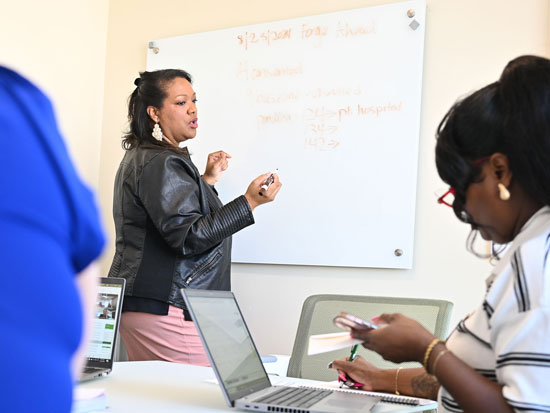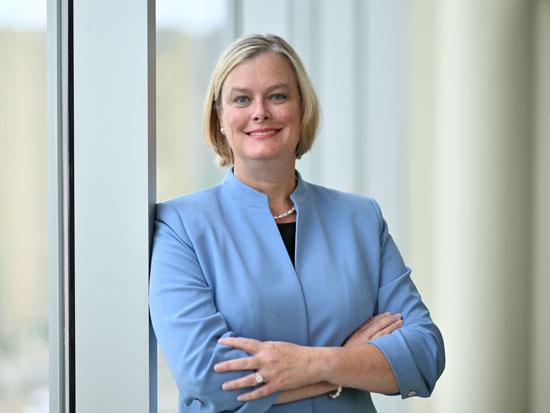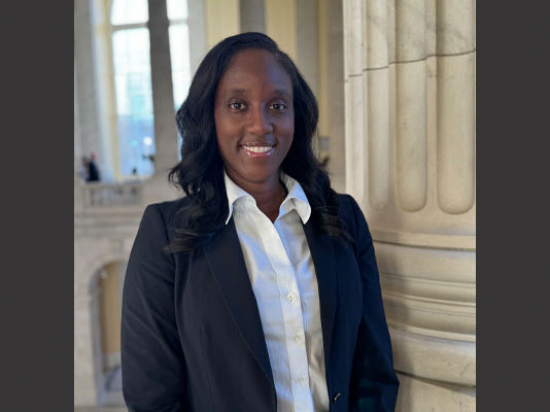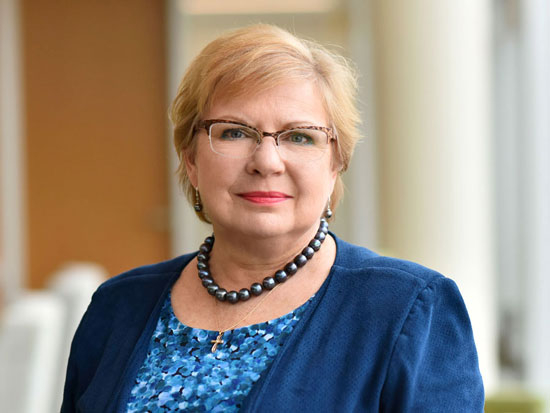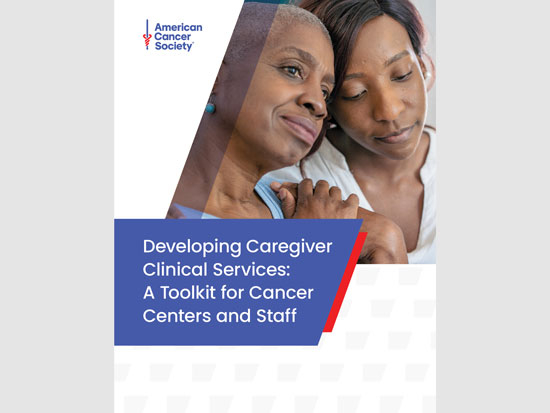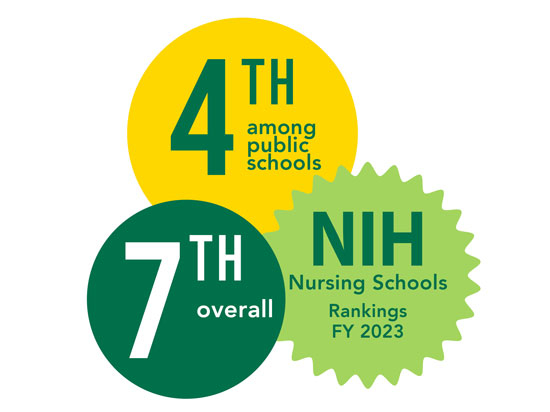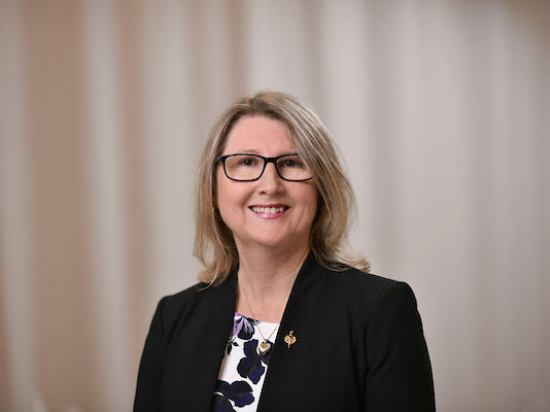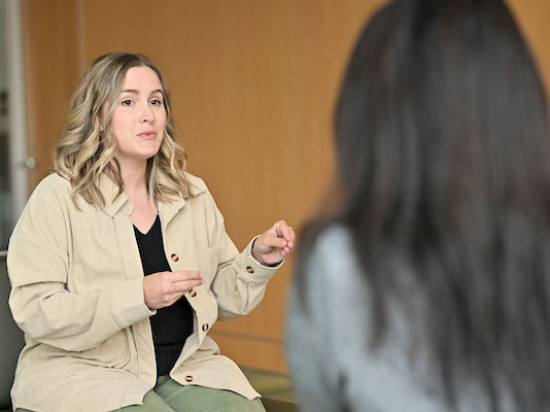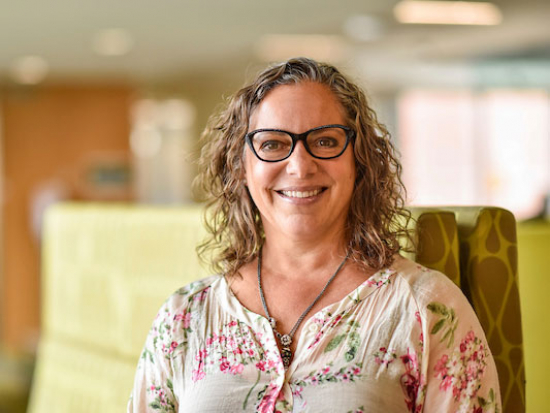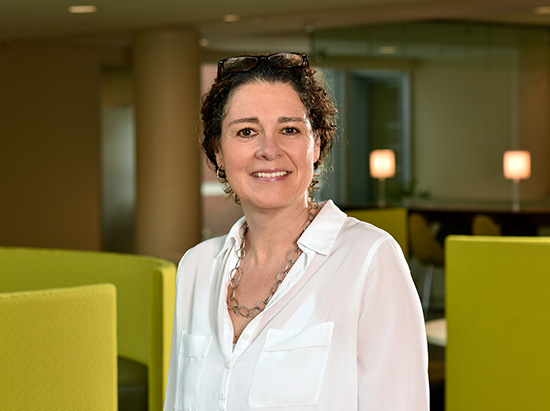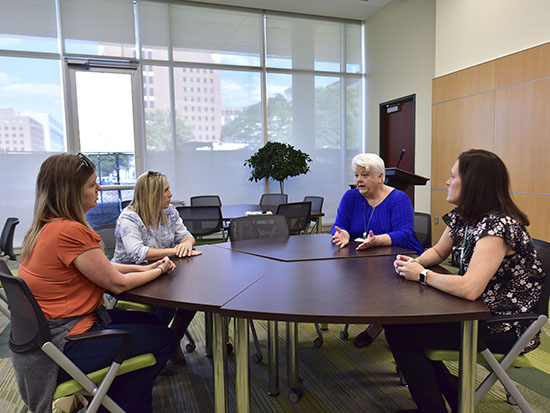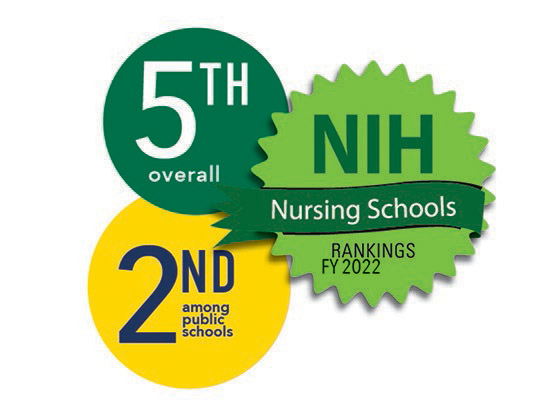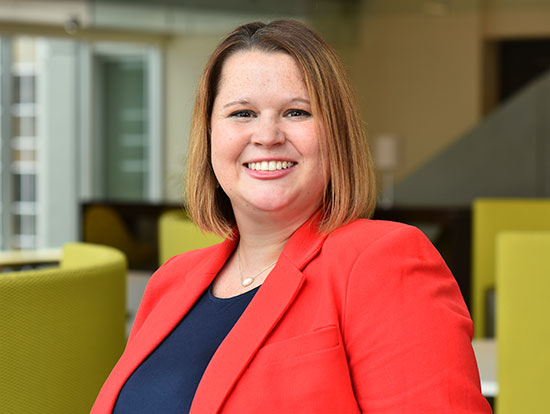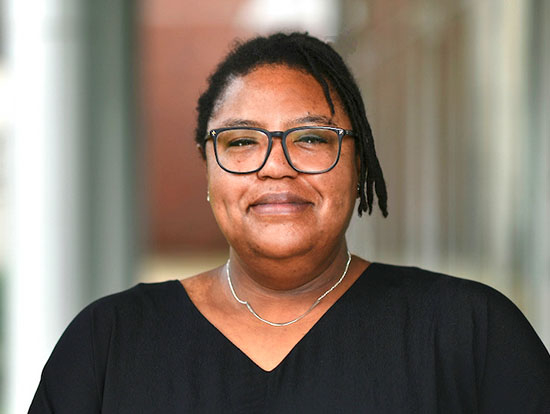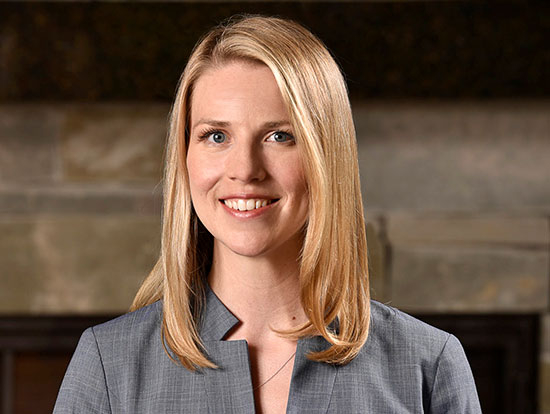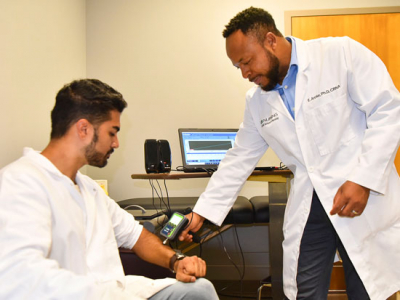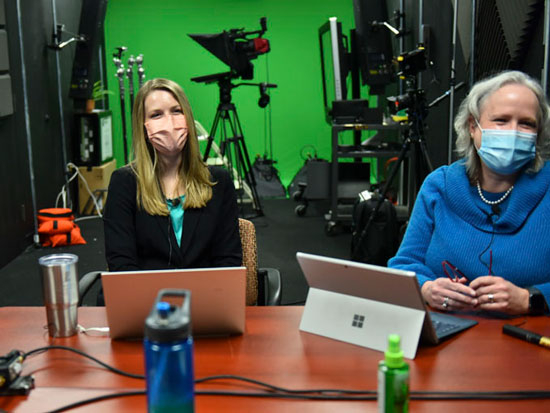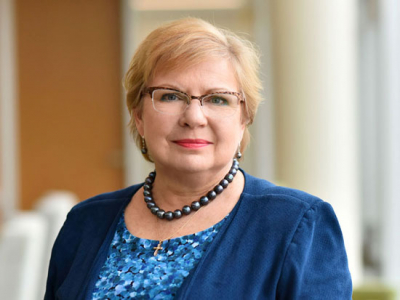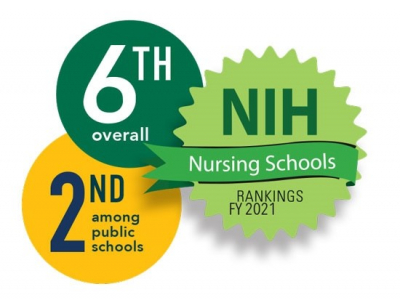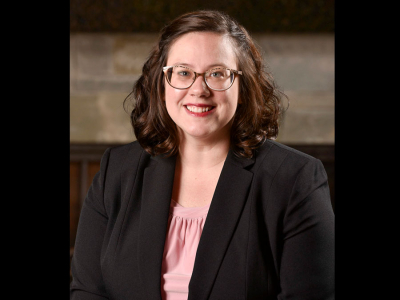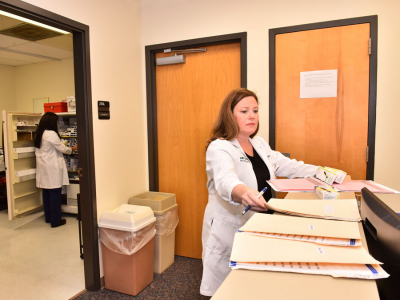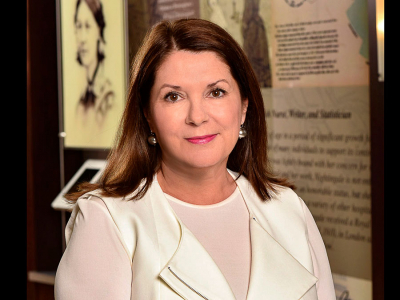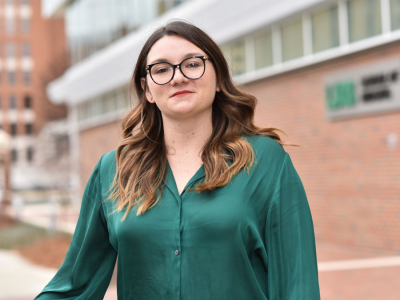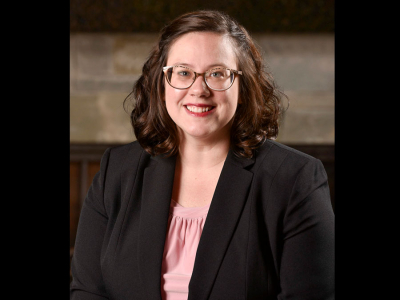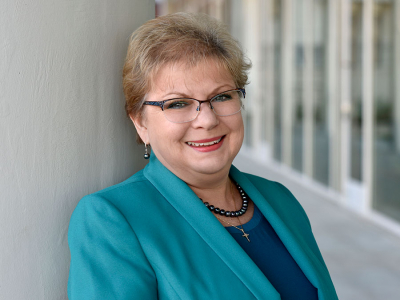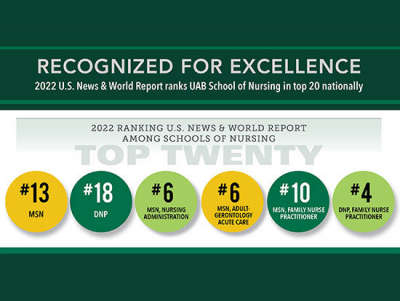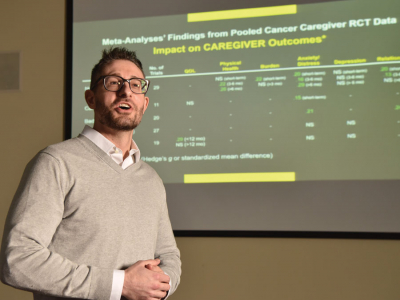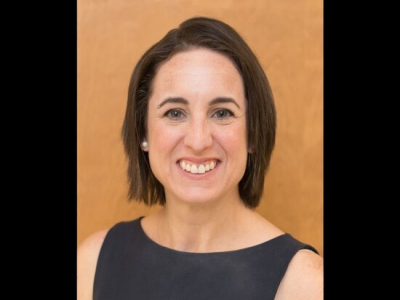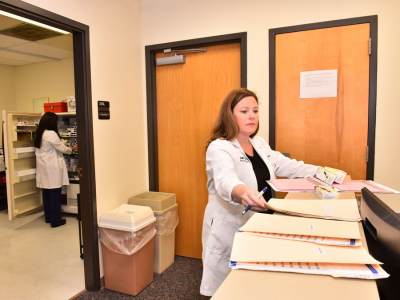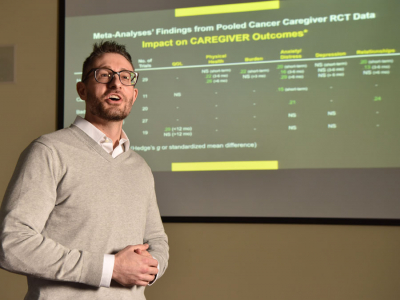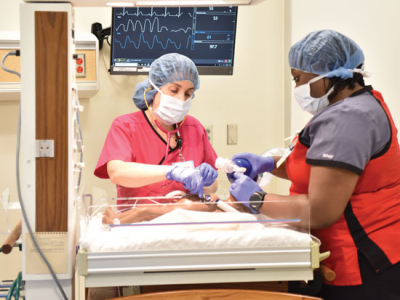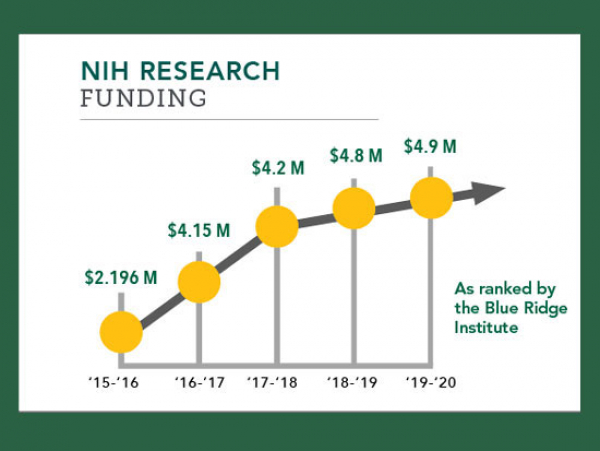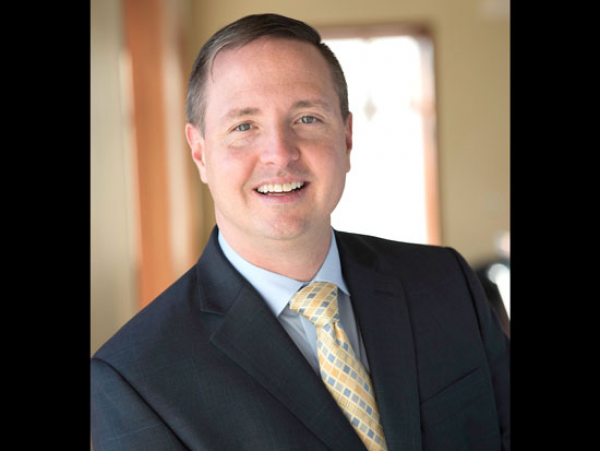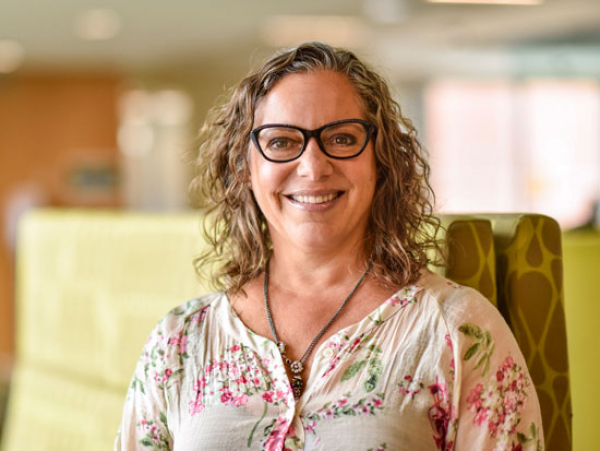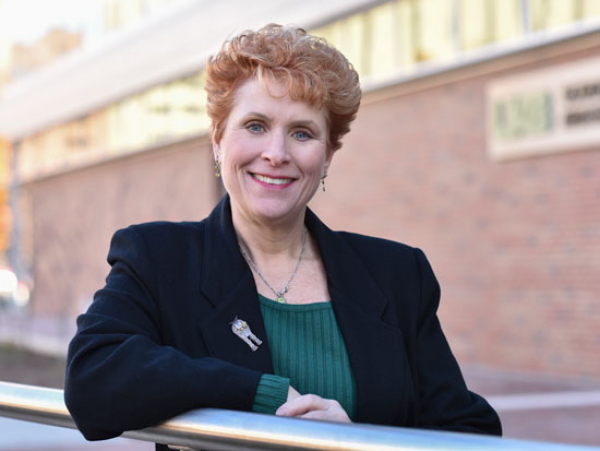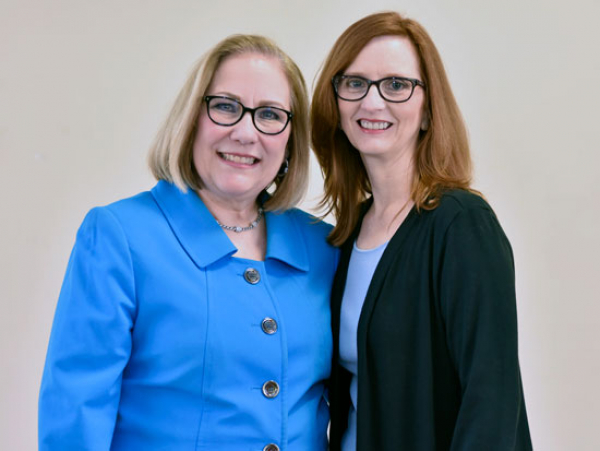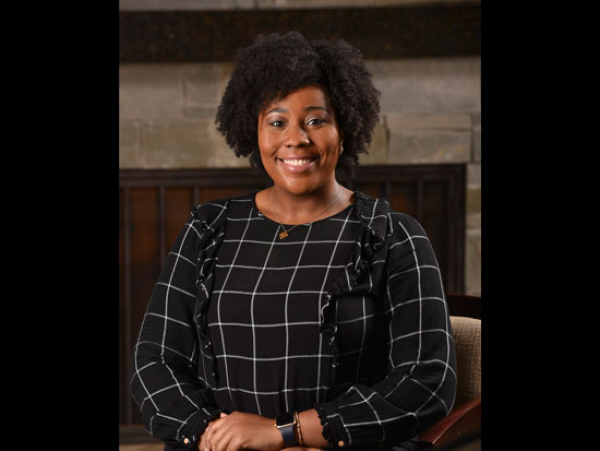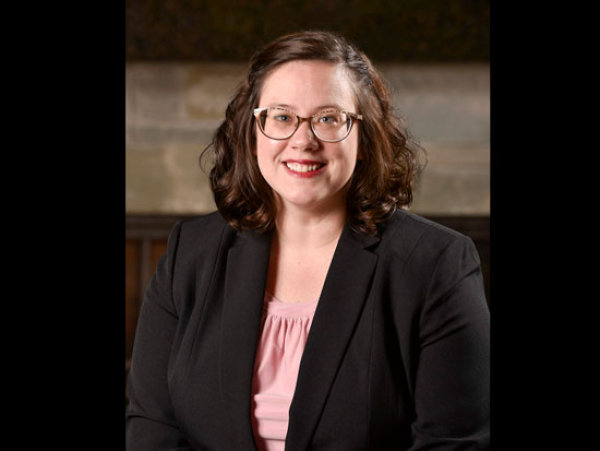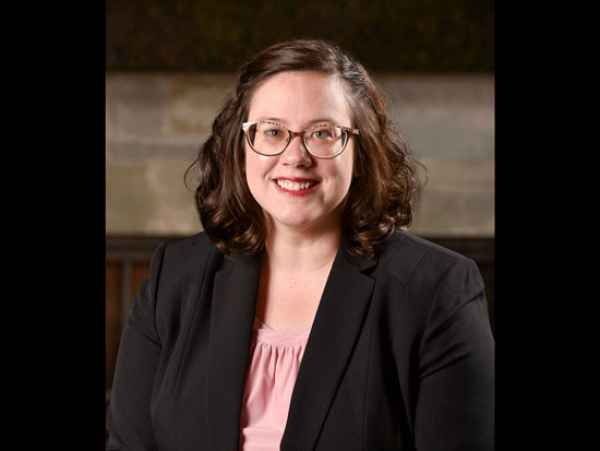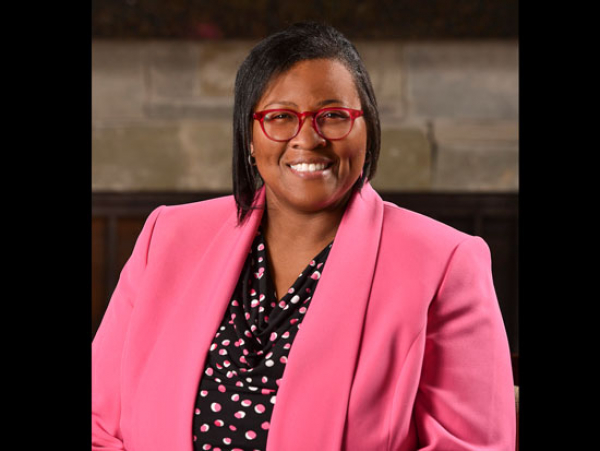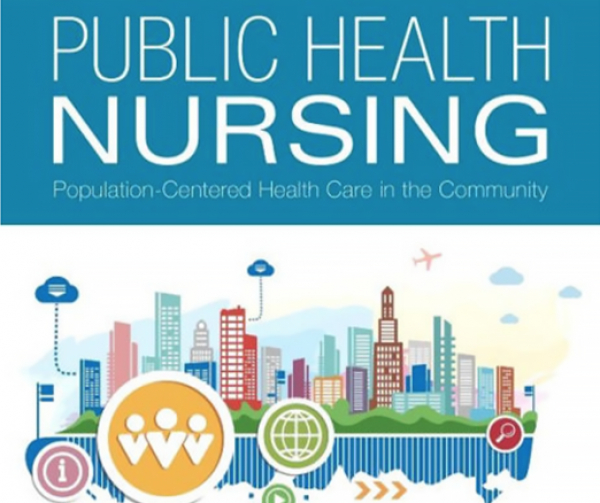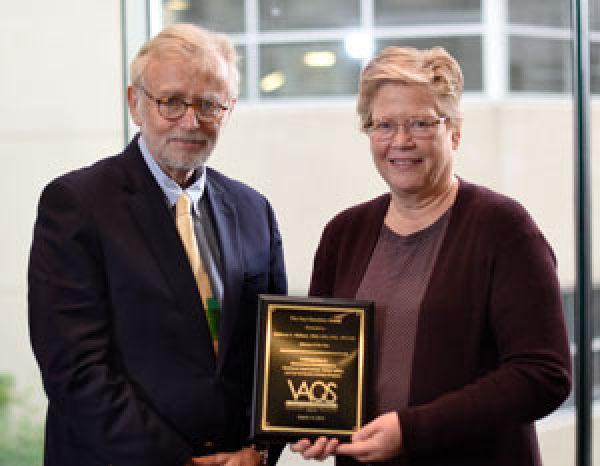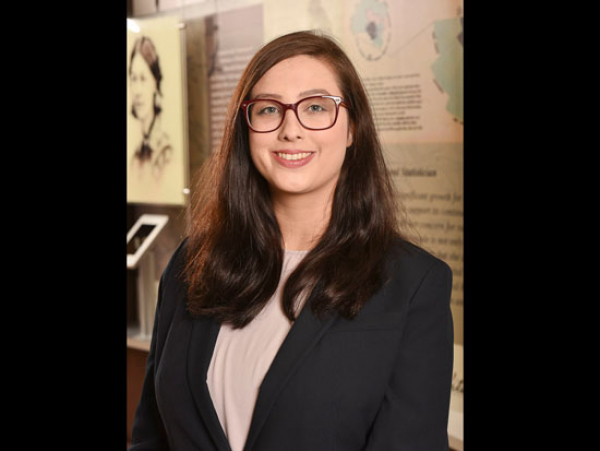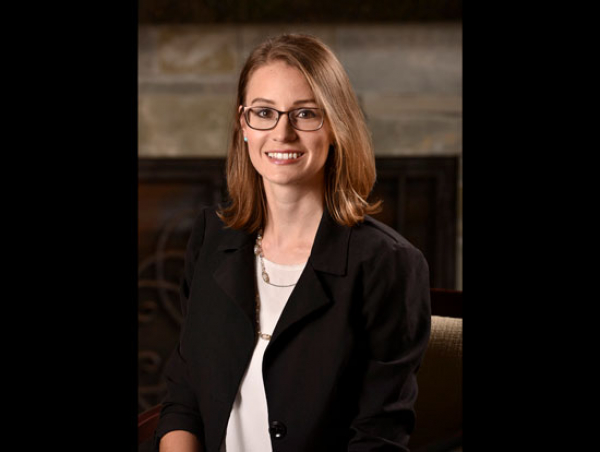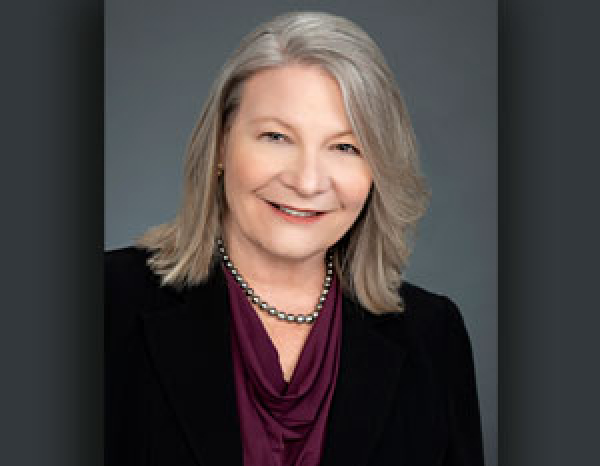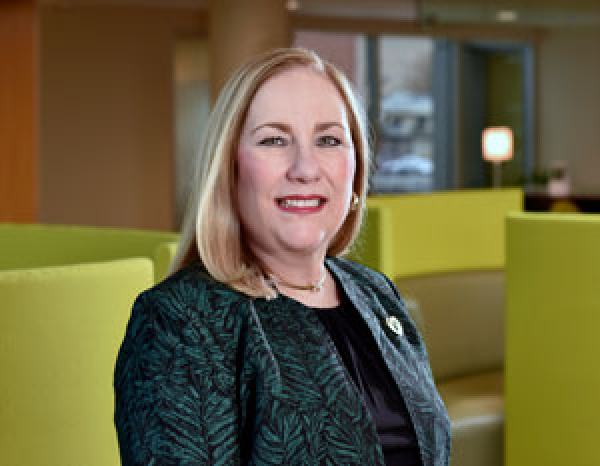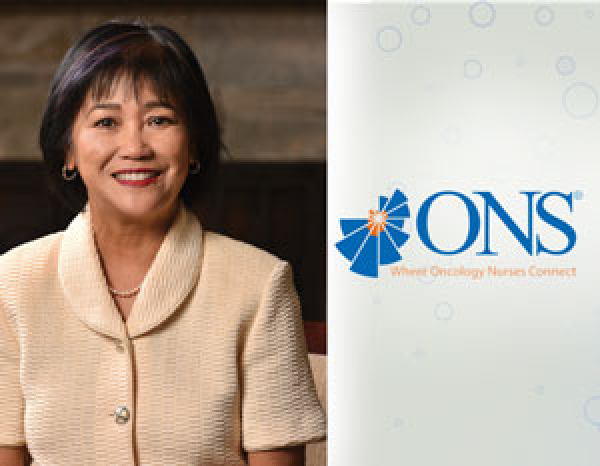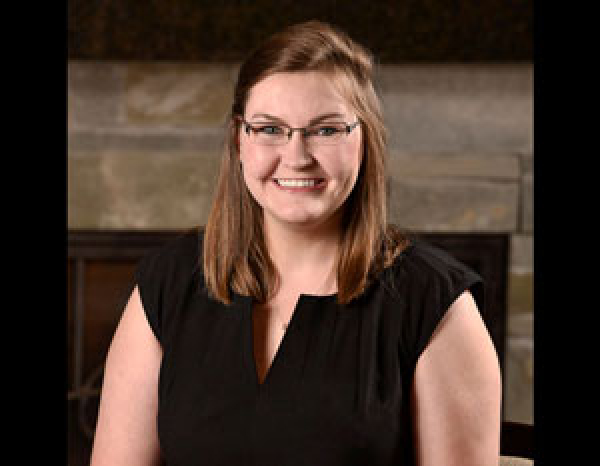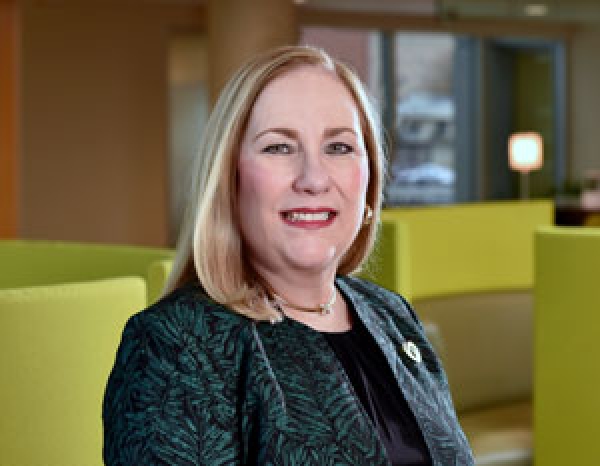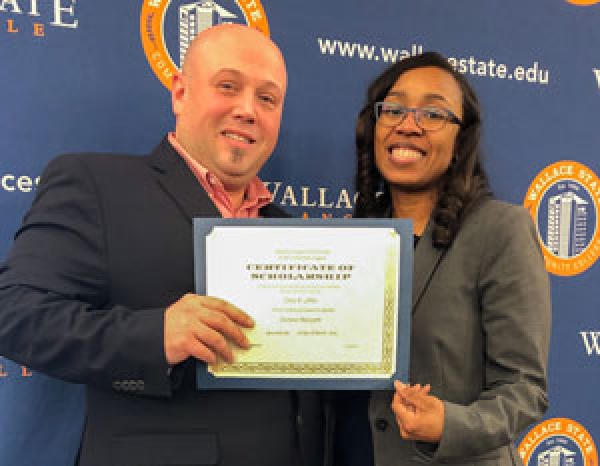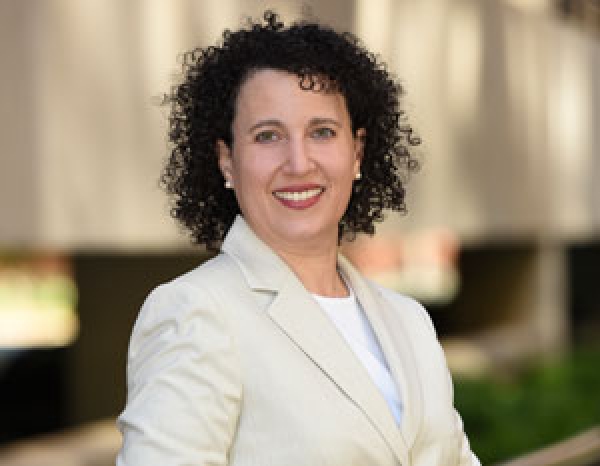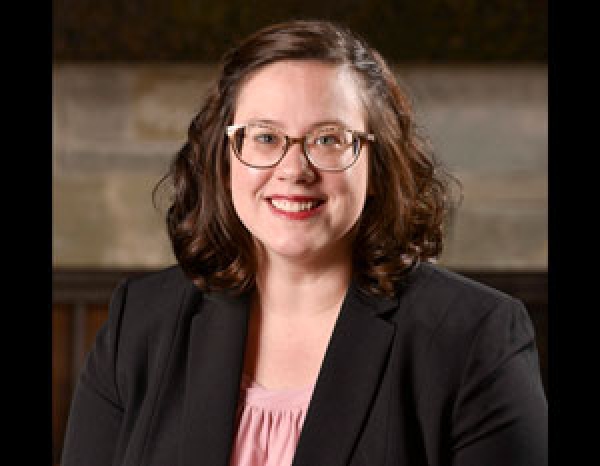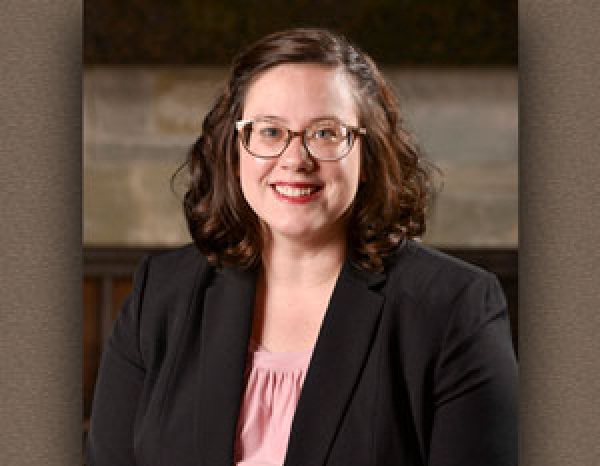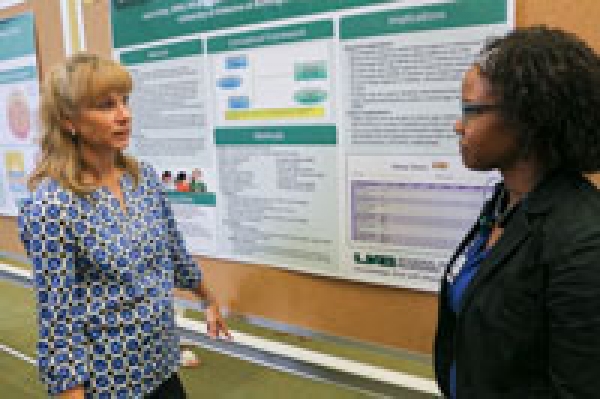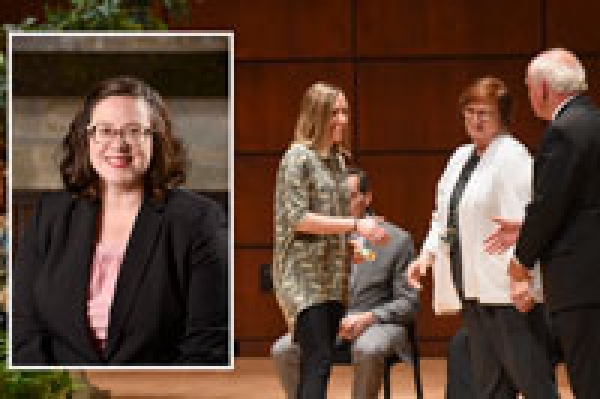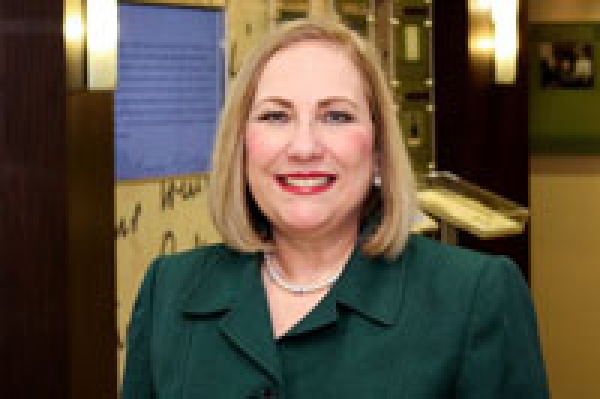 Joy P. Deupree, PhD, MSN, APRN-BC, an assistant professor in the University of Alabama at Birmingham (UAB) School of Nursing, has been named one of 20 Robert Wood Johnson Foundation (RWJF) Executive Nurse Fellows for 2014.
Joy P. Deupree, PhD, MSN, APRN-BC, an assistant professor in the University of Alabama at Birmingham (UAB) School of Nursing, has been named one of 20 Robert Wood Johnson Foundation (RWJF) Executive Nurse Fellows for 2014.
Deupree joins a select group of nurses from across the country chosen to participate in the final cohort of this world-class, three-year leadership development program designed to enhance the effectiveness of nurse leaders who are working to improve the United States health care system.
Executive Nurse Fellows hold senior leadership positions in health services, scientific and academic organizations, public health and community-based organizations or systems, and professional, governmental, and policy organizations. They continue in their current positions during their fellowships, and each develops, plans, and implements a new initiative to improve health care delivery in her or his community. The fellowship is supported through a grant from the Robert Wood Johnson Foundation.
“The magnitude of this program is overwhelming and exciting all at the same time. From speaking with past Fellows, I anticipate it will provide me with the guidance and support to take on projects that are more challenging and significant, not only in Alabama but nationwide,” Deupree said.
Started by RWJF in 1998, the RWJF Executive Nurse Fellows (ENF) program strengthens the leadership capacity of nurses who aspire to shape health care in their communities, states, and nationally. The program will provide Deupree and her colleagues with coaching, education, and other support to strengthen their abilities to lead teams and organizations working to improve health and health care. The ENF program is located at the Center for Creative Leadership (CCL), and co-directed by Linda Cronenwett, PhD, RN, FAAN, dean emerita and professor in the School of Nursing at the University of North Carolina at Chapel Hill, and David Altman, PhD, executive vice president and managing director at CCL.
“At this moment, when the role of nurses in providing care and promoting health is expanding and our country’s health care system is being transformed, we need nurse leaders with the strongest skills possible,” Cronenwett said. “The RWJF Executive Nurse Fellows program is enhancing the leadership skills of talented nurses all across the country. Our alumni are a virtual ‘who’s who’ of accomplished, prestigious nurses, and we know that Joy Deupree and the other members of the 2014 RWJF Executive Nurse Fellows cohort will do a tremendous amount to improve health care and build a culture of health in the United States.”
Deupree is the epitome of the description of an RWJF Executive Nurse Fellow– a nurse who “holds senior leadership positions in health services, scientific and academic organizations, public health and community-based organizations or systems, and national professional, governmental, and policy organizations” – and her leadership has impacted a number of organizations, including the Alliance of International Nurses for Improved Health Literacy – which she founded.
She also is the senior advisor for policy for the Nurse Practitioner Alliance of Alabama (NPAA), the professional association that represents the interests of more than 3,000 Certified Registered Nurse Practitioners in Alabama. Deupree and five colleagues began working in 2006 to establish the NPAA to spearhead the efforts to reduce practice barriers for advanced practice registered nurses in Alabama, and to strengthen relationships among health care provider and other interest groups statewide and laws for all of nursing in the state.
Deupree’s list of accomplishments and service to patients and the profession is impressive for someone who returned to college in her early 30s to pursue a BSN, all while she and her family owned and operated several successful family businesses.
“I dreamed of being a nurse since high school but life got in the way,” she said. “I was fortunate when I returned to school I had complete support from my entire family as I began my journey to become a nurse practitioner.”
Deupree found her passion in nursing school – improving health care access for rural and underserved areas of Alabama. After completing her BSN she immediately returned to school to earn a master’s degree that would result in her certification and practice as a nurse practitioner - serving primarily the indigent and underserved. Later, she earned a PhD in health education, public health and health promotion via a joint program with UAB and the University of Alabama with health literacy as her dissertation topic for which she now dedicates her research.
“In the years that have passed, I have been very fortunate to live my dream of helping underserved populations,” she said. “I have never been more committed than I am today and the need has never been greater.”
Today passion for improving access to care for those in rural and underserved areas has taken her from caring for patients to working with the Alabama legislature to pass legislation to expand the role of nurse practitioners in the state.
Deupree was president of NPAA from 2012-2013, championing the passage in the Alabama Legislature of SB224 that improved the scope of practice for nurse practitioners; SB224 creates an avenue for nurse practitioners to have access to the Patient Drug Monitoring Database and prescribe controlled substances.
A key component of the SB224 called for an advisory council to be established between nursing and medicine to continue the work of eliminating barriers and improve access in Alabama. Deupree is an appointed member of the committee.
“Up until this bill was passed, NPs could not treat the pain needs of patients, leaving them to suffer or wait months to get into see a physician and sometimes drive hours to an appointment,” she said. “For those in rural areas, the problem was compounded due to the distance some of them would have to travel just to get a prescription. With the passage of SB224, NPs now can assess all needs of the patient.”
Deupree said that even with the passage of SB224 there are still opportunities and challenges for continued growth and change of policy that will support system change over the next decade.
This, she said, will take strong leadership with committed individuals and believes her time as an RWJF Executive Nurse Fellow will give her even more tools to fulfill one of her goals as a Fellow -- building upon what has already been accomplished. Even though there are 19 states and Washington, D.C., that have independent practice for NPs, there is much work to be done both in Alabama and nationally she said she is anticipating collaborating with others nationally sharing lessons learned from what has been accomplished in Alabama.
“With the changes that are expected to impact patient care through health care reform, health insurance exchanges, and Medicaid reform, it will be more important than at any time in the past for health care providers to work with policy makers and business leaders to produce better results with fewer resources,” she added. “I believe nurses who take an approach of inclusivity to solve problems will have a significant impact on the future of health care in Alabama.”
“My ultimate goal is to decrease practice barriers for nurse practitioners in Alabama and promote a culture of interprofessional practice and collegiality among nurse practitioners and physicians,” she said. Throughout the past several years while working on legislation, my mantra was to put the patient at the center of the discussion. In today’s world of health care, the need is so great; there is room for all professions to work together,” she said.
Her second goal with the RWJF Executive Nurse Fellow program is to work with national leaders of the health literacy movement and nursing field in an effort to better train nursing students as well as nurses at the beside on all matters related to health literacy. Alabama, Deupree said, has some of the greatest needs related to low health literacy.
“Nurses have more potential for impact related to better patient understanding than any other part of the health care team because they are with patients longer than most other providers,” she said. “Many states have a Center for Health Literacy to coordinate patient health care needs related to low health literacy but Alabama does not. “My dream would be to have Alabama establish such a Center for the benefit of patients, hospitals and the entire health care team- possibly as a link to a university or the Alabama Public Health Department. A center such as this could also conduct research to improve patient outcomes.”
It is not enough, Deupree said, to conduct patient education, nurses also must be taught to understand the prevalence of low health literacy and be aware of options for patients- whether it be referrals to adult basic education classes or designing work arounds to assist a patient, there are many ways nurses can have a tremendous impact.
“Too often we find health care professionals providing patients with written information. In general, most providers, do not realize how many patients read at or below a fifth grade reading level which puts them at great risk for non-compliance because they either can’t read the information or do not understand the “why” of what they are being told,” she said. “So many of us take for granted that patients can read and compute, when they cannot, even the simplest of medication management can turn into a health care crisis.”
Deupree added that once her Fellowship is complete, not only does she hope to utilize what she has learned to make positive changes for the health of Alabamians, she also hopes to bring along the state’s next generation of nurse leaders.
“Throughout my life I have been fortunate to have been mentored by tremendous leaders who encouraged me to work hard and seek out opportunities to be a leader,” Deupree said. “Whether it was service to a non-profit or through my employment as a nurse or faculty member at UAB, I have been nurtured by some of the best and that lead me to this most prestigious Fellowship and I can’t thank those mentors enough for guiding me along the way. I hope I can pay that forward. And with my passion and eagerness to learn how to be a better leader armed with the support of my employer and those I represent through non-profit work, I believe I can play a significant role over the next decade and beyond as Alabama seeks solutions for the many health care disparities we face.”
About the Robert Wood Johnson Foundation
For more than 40 years the Robert Wood Johnson Foundation has worked to improve the health and health care of all Americans. We are striving to build a national Culture of Health that will enable all Americans to live longer, healthier lives now and for generations to come. For more information, visit www.rwjf.org. Follow the Foundation on Twitter at www.rwjf.org/twitter or on Facebook at www.rwjf.org/facebook. For more information about the RWJF Executive Nurse Fellows program visit www.ExecutiveNurseFellows.org.

